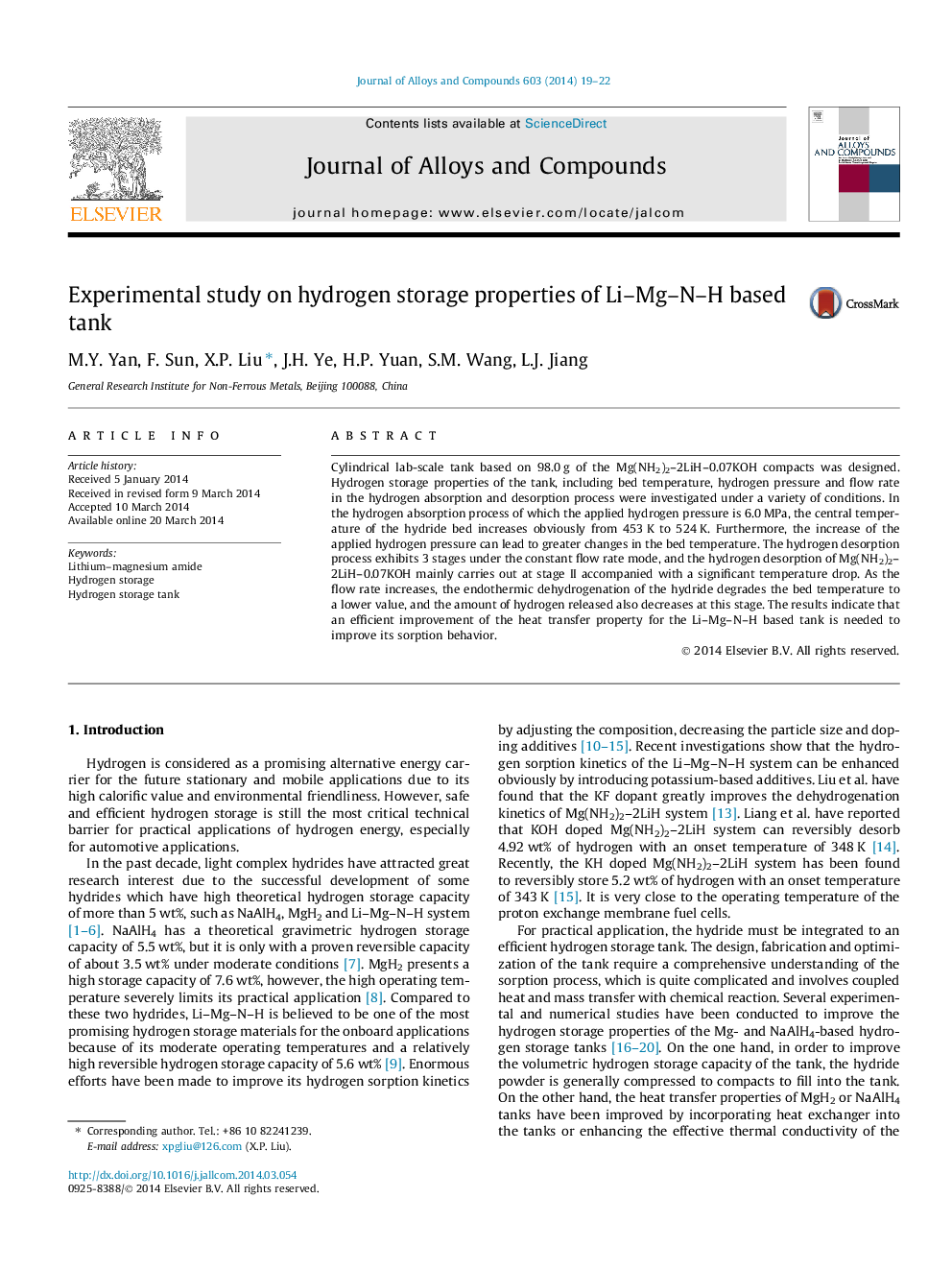| Article ID | Journal | Published Year | Pages | File Type |
|---|---|---|---|---|
| 1611165 | Journal of Alloys and Compounds | 2014 | 4 Pages |
•A lab-scale tank based on 98.0 g of the Mg(NH2)2–2LiH–0.07KOH compacts was studied.•The temperature rise of the hydride increases with increasing the applied hydrogen pressure.•The applied hydrogen pressure also strongly affects the hydrogen absorption rate and capacity.•The hydrogen desorption process of the tank exhibits 3 stages under constant flow rate mode.•The flow rate has great influence on the temperature field of the hydride bed.
Cylindrical lab-scale tank based on 98.0 g of the Mg(NH2)2–2LiH–0.07KOH compacts was designed. Hydrogen storage properties of the tank, including bed temperature, hydrogen pressure and flow rate in the hydrogen absorption and desorption process were investigated under a variety of conditions. In the hydrogen absorption process of which the applied hydrogen pressure is 6.0 MPa, the central temperature of the hydride bed increases obviously from 453 K to 524 K. Furthermore, the increase of the applied hydrogen pressure can lead to greater changes in the bed temperature. The hydrogen desorption process exhibits 3 stages under the constant flow rate mode, and the hydrogen desorption of Mg(NH2)2–2LiH–0.07KOH mainly carries out at stage II accompanied with a significant temperature drop. As the flow rate increases, the endothermic dehydrogenation of the hydride degrades the bed temperature to a lower value, and the amount of hydrogen released also decreases at this stage. The results indicate that an efficient improvement of the heat transfer property for the Li–Mg–N–H based tank is needed to improve its sorption behavior.
